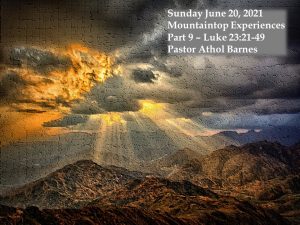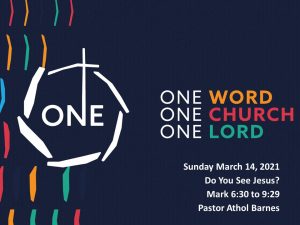
When Debbie and I grew up in South Africa, Christmas was in the middle of our summer break. It was hot and usually we would spend the day around a swimming pool. We never dreamed growing up that we would ever experience a white Christmas.
The irony was that we would decorate our houses with winter themed Christmas decorations in the middle of the African Summer. But just like Christmas doesn’t seem to fit in Summer, one seldom looks at Paul’s letter to the church in Philippi during the Christmas season. However, I believe that Philippians 2:3-11 speaks of the incredible glory of the nativity.
Christmas is a time when we remember the ultimate act of humility. The creator God humbled himself and became a baby, every aspect of the nativity is a picture of humility.
Christmas is a season when we think of others, we take time to choose gifts that our loved ones would cherish. Gift giving is a picture of Philippians 2:4, “Let each of you look not only to his own interests, but also to the interests of others.” Thinking of others involves humility, putting others interests first. This is what Christmas is all about, God thought about you when He sent His son to the earth.
The Christmas story is all about humility.
Mary and Joseph were turned away from the Inn and all that was available for the birth of the Messiah was a manger, a feeding trough for the animals. The most unlikely place for the birth of the savior of the world, but it was a demonstration of humility by God.
Then we have the location of the birth, the town of Bethlehem. The prophet Micah wrote about Bethlehem in Micah 5:2, “But you, O Bethlehem Ephrathah, who are too little to be among the clans of Judah, from you shall come forth for me one who is to be ruler in Israel, whose coming forth is from of old, from ancient days.”
Bethlehem is a small town, not one of the great cities of the world. An unlikely place for the birth of a mighty king. God was painting a picture of humility.
Then we have Mary, a young girl engaged to be married. She had no wealth or status, she wasn’t a prophetess or a religious leader or student of the Law, but she was available and humble. After the angel Gabriel gave Mary the message of the fact that she would be the mother of the promised messiah, she simply said in Luke 1:38, “…Behold, I am the servant of the Lord; let it be to me according to your word.” Note that Mary doesn’t argue or complain about the disruption to her life, she humbly accepts the will of God.
The same with Joseph, a man who worked as a carpenter, with plans to get married and raise some children who would follow along in his trade. When the angel gave Joseph the news in a dream, he didn’t argue or disagree with the plan of God, he humbly submitted to the will of God.
So it was with the shepherds. I have often wondered why God sent angels to the shepherds first. These were men who worked at night in the fields. They were seldom seen in the public square and their lives were not glamorous. But God chose to reveal the greatest of all miracles first to the shepherds. God loves the humble.
The wise men also came with great gifts and wealth. But they didn’t come to be honored, rather they came to give honor as they knelt and worshipped a baby. The child promised in the ancient writings to be the king of the Jews.
And then we have the Christ child. Jesus was and is the eternal second part of the trinity. He is the creator God existing in unapproachable light of the glory of the Lord. Yet he willingly chose to take on flesh, to become like one of his creation (See Philippians 2:8).
Our minds cannot begin to comprehend the humility of the lord of hosts to come in the form of a baby. Helpless and needing to be fed, carried, and cleaned. But in that humbling was the very root of our salvation.
In every aspect of the nativity, you see the overarching theme of humility.
Jesus lived a life of humility culminating with the greatest act of love, when Jesus, the God of all creation humbled himself (See Philippians 2:5-7).
Why is humility so important?
Humility is the one thing that when you are aware that you have obtained it, you have just lost it.
The Bible is full of texts that speak about the power of humility, (James 4:6, Isaiah 66:2, Proverbs 3:34 and many more).
The reason why humility is so important, is because the root of all sin is pride. When Satan tempted Adam and Eve, he appealed to their pride and that was the downfall of humanity. The root of all sin is pride, that is why our salvation comes through humility. But this is so counterintuitive in our 21st century western world. Our culture validates and applauds pride.
The 19th century Poem called Invictus by William Ernest Henley speaks about the pride of humanity without God.
Out of the night that covers me,
Black as the Pit from pole to pole,
I thank whatever gods may be
For my unconquerable soul.
It matters not how strait the gate,
How charged with punishments the scroll,
I am the master of my fate:
I am the captain of my soul.
I am the captain of my destiny; I will do what makes me feel good. This is the world we live in today, with little thought of humility. Pride leads to sin, death, and eternal separation from God.
Our salvation comes through humility. We are saved when we humble ourselves and realize that we can do nothing to save ourselves. We simply must repent of our sins and receive the free gift of salvation made possible by the death and resurrection of Jesus Christ.
Have you made Jesus Christ lord of your life?





 He is Risen!
He is Risen!
 As we study the Old Testament we see that it all points to the coming Messiah, it is as if the Old Testament is a road that leads to the little town of Bethlehem, and to a seemingly insignificant event on a global scale, a child being born who will be the savior of the world.
As we study the Old Testament we see that it all points to the coming Messiah, it is as if the Old Testament is a road that leads to the little town of Bethlehem, and to a seemingly insignificant event on a global scale, a child being born who will be the savior of the world.